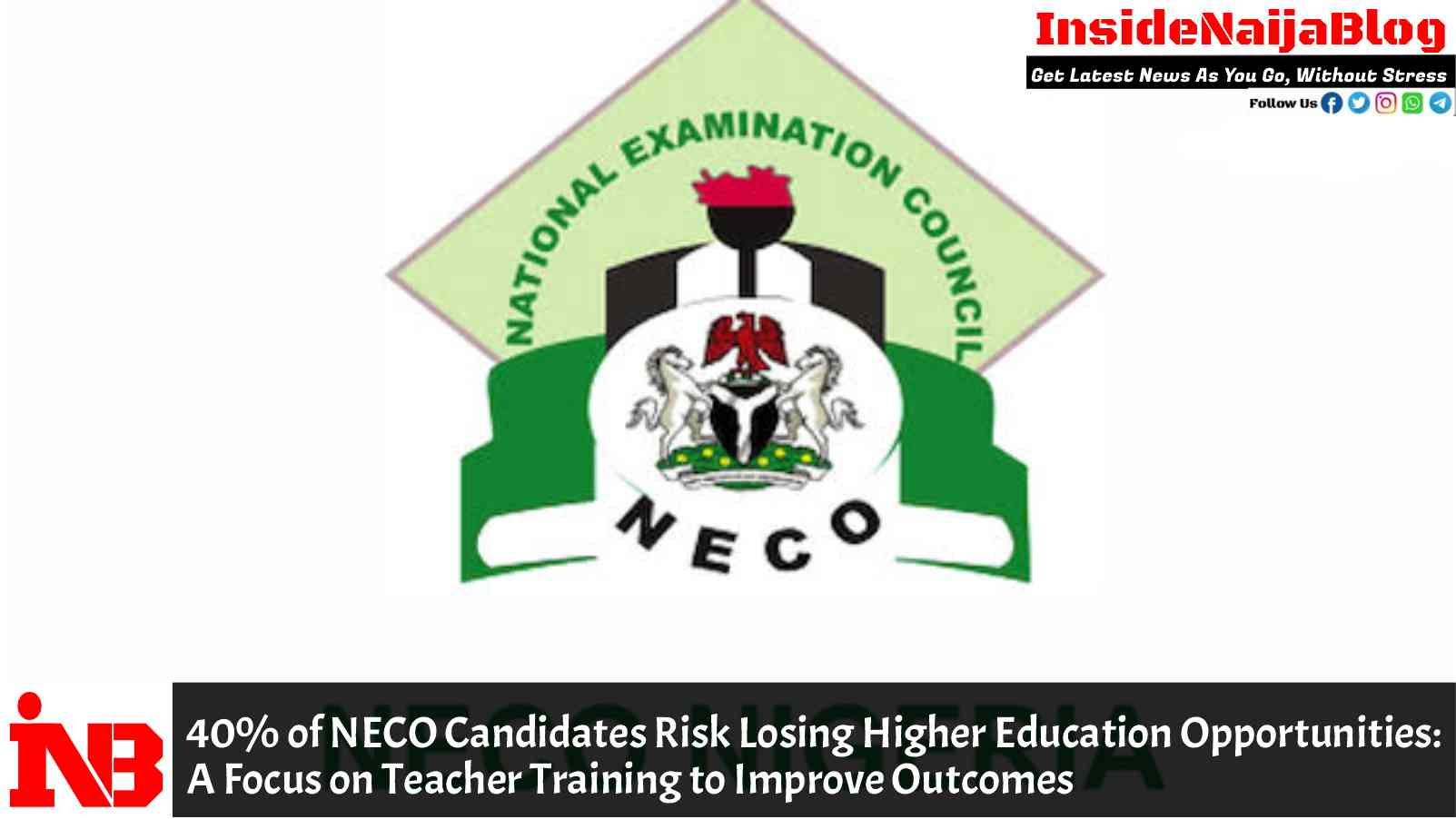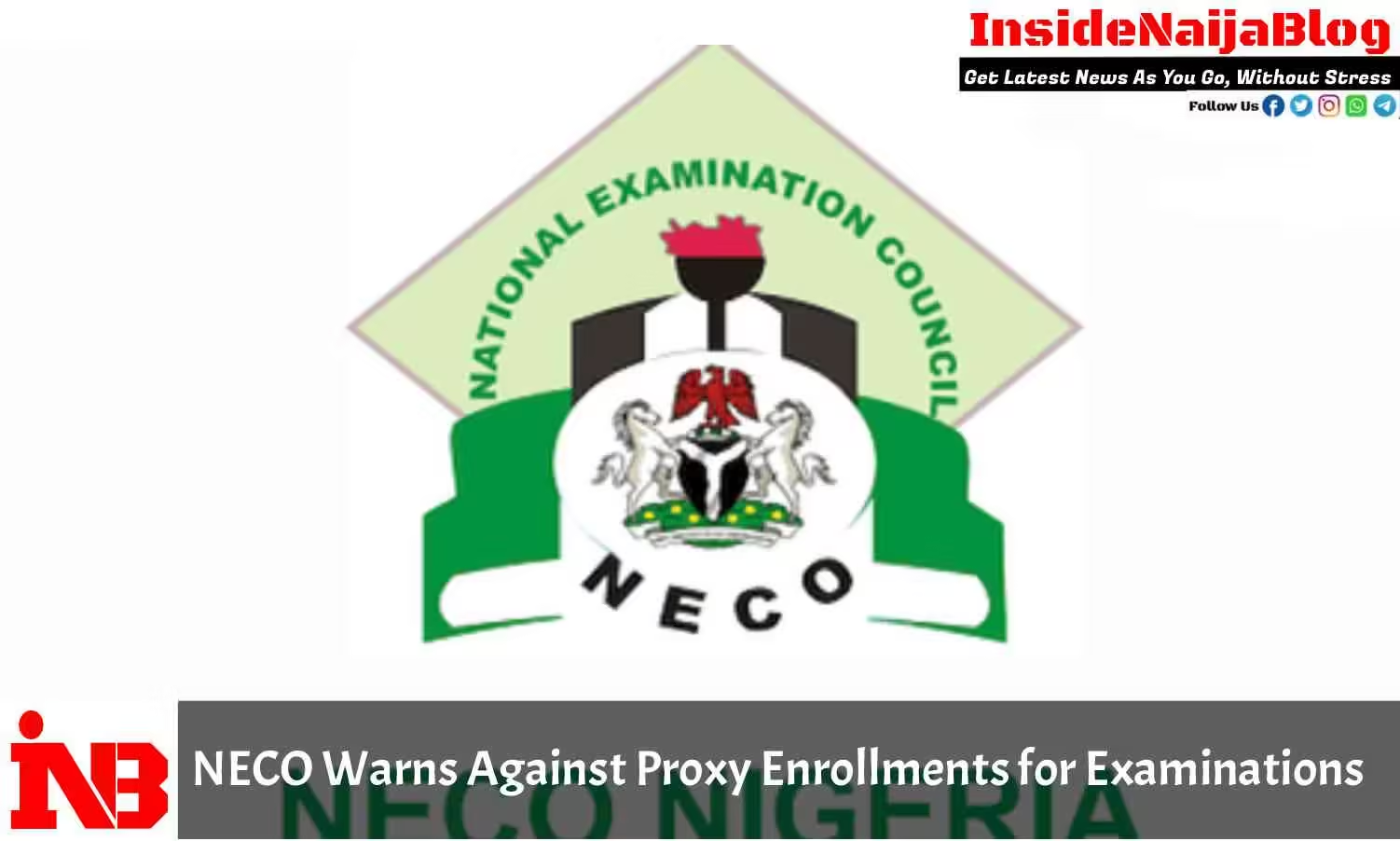In a troubling development for Nigeria’s education sector, Dr. Iyela Ajayi, Executive Secretary of the National Senior Secondary Education Commission (NSSEC), revealed that nearly 40% of students who took the 2024 National Examination Council (NECO) exams might not qualify for tertiary education. This limitation arises because these students were unable to earn the required credits in English Language and Mathematics—two core subjects necessary for admission into higher institutions. Dr. Ajayi shared this information during a five-day workshop held in Calabar aimed at improving teaching standards for English and Mathematics educators from Nigeria’s South-South Geo-Political Zone.
Dr. Ajayi’s remarks underscored the urgent need for educational reform, as this situation isn’t isolated to NECO alone. In 2024’s West African Examination Council (WAEC) results, about 28% of candidates also failed to pass these critical subjects. This means that many students across the nation face similar obstacles in progressing academically, which could lead to a generation-wide challenge in meeting educational and career goals. According to Dr. Ajayi, while approximately 61% of NECO candidates managed to secure five or more credits, including Mathematics and English, the remaining 40% will struggle to advance without passing these core subjects.
The executive secretary emphasized that infrastructure and curriculum improvements alone are insufficient for educational progress. He pointed out that a fundamental issue in Nigeria’s education sector is the lack of adequately trained teachers, both in terms of quality and sheer numbers. “Teachers are the backbone of any educational system, and if we ignore their training and motivation, we effectively compromise the quality of our education,” Dr. Ajayi remarked. He further explained that NSSEC is committed to supporting teachers, especially in English and Mathematics, by investing in their training and development.
The workshop in Calabar is one of NSSEC’s initiatives to address this pressing need, focusing on the skills teachers need to deliver effective instruction in these vital subjects. For five days, the workshop will guide teachers in enhancing their teaching methods (pedagogy) and improving their assessment skills. Additionally, the program aims to create a supportive network among teachers across the region, fostering collaboration and idea-sharing. This workshop represents a step forward in developing innovative teaching methods that can better engage students and improve pass rates in core subjects.
Cross River’s Commissioner for Education, Senator Stephen Odey, officially inaugurated the workshop, hailing it as an invaluable opportunity for teachers in the region. Odey, represented by Mr. Emmanuel Ikade, Permanent Secretary in the state’s Ministry of Education, highlighted that many teachers have been unable to access training opportunities in recent years due to limited funding. He urged attendees to fully engage with the program and to share their newfound skills with colleagues who were unable to attend.
Among the facilitators at the workshop was Professor Samuel Nneji, an expert in Mathematics and Computer Science Education at Enugu State University of Technology (ESUT). Prof. Nneji explained the need for teachers to adopt innovative strategies that resonate with today’s students, especially as older teaching techniques may no longer be effective. He remarked that “many of the skills we were taught years ago aren’t sufficient for today’s generation. We need creative teachers who can adapt their methods to engage students in meaningful ways, even in challenging circumstances.”
By investing in teacher training, NSSEC and other educational bodies hope to address the underlying challenges in Nigeria’s education system that contribute to low pass rates in core subjects. This initiative is more than just a training session—it’s part of a larger vision to create a more robust and inclusive educational environment where students, especially those from disadvantaged backgrounds, can succeed academically and access tertiary education. Dr. Ajayi and other education leaders hope that programs like this will pave the way for better educational outcomes, ultimately preparing students for the demands of the future.
The workshop’s impact could extend well beyond the immediate term, creating a ripple effect of improved teaching standards, more motivated teachers, and ultimately, a more skilled student population better equipped for the challenges of higher education. As more teachers are empowered to adopt innovative approaches, the hope is that the current barriers to educational advancement will begin to erode, offering students a brighter academic future and a path toward fulfilling their potential.




